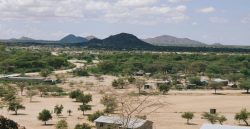A screening tool developed at the University of British Columbia promises to help identify risks of forced labor in global seafood supply chains by triangulating data from suppliers, human rights authorities, and workers.
Researchers and labor activists behind the five-point framework, called the “Labor Safe Screen”, published their findings this week in Science Advances. Their research screened 118 seafood products between 2014 and 2017 with 18 participating food companies.
Lead author, Dr. Katrina Nakamura, explains in Science Advances:
In the five-point LSS framework, four components were used for risk identification: (i) product screening for country-level origins and standing on forced labor in seafood, (ii) a template to map the supply chain, (iii) an algorithm to estimate risk in fishing operations, and (iv) surveys to collect proof of protective conditions in the workplace.
The fifth component is a set of principles for minimum protective conditions in the workplace and supporting templates for a code of conduct, universal contract, grievance mechanism, and disclosure of efforts. Companies used this component to incorporate findings from the earlier components and correct work conditions.
The companies were able to identify areas where working conditions met minimum principles, were unknown, or were inadequate. Three companies also incorporated direct worker feedback to focus resources and improve working conditions.
A major part of the research included interviewing 197 fishing crew and processing plant workers in the Samut Sakhon area of Thailand back in 2015.
Researchers partnered with local NGO Labour Rights Promotion Network (LPN), finding “Of 113 men working on Thai fishing boats, 111 had no contract and were paid by labor agents on an irregular basis.” Furthermore, “Debt bondage was commonplace through a system of advances and fees by the brokers.”
Nakamura says that the study’s findings led the research team to propose four key ways to reduce the risk of forced labor in seafood supply chains. These include:
- Making a commitment to the principle of no forced labor. Properly, it means providing workers with a protective and actionable contract because enforceable agreements are a prerequisite for access to effective remedy, which, in turn, is necessary for brand accountability.
- Second is adoption of the employer-pays model. It means that the vessel owner or facility owner explicitly pays all costs of work and prohibits brokers from taking ongoing fees.
- Third is contract consistency. The contract terms for work on the vessel must match the terms signed onto (for migrant workers, with the labor broker in the home country).
- Fourth is free agent status. It means that contracted workers have the freedom to leave work (defined in the contract) and freedom to negotiate work terms, either individually or as a group.
By doing this, she concludes, “Food companies can effectively and efficiently assess and reduce risks of forced labor in seafood supply chains—not to claim “no slavery” but to greatly improve their awareness of the labor conditions in the making of the products they trade and to identify feasible targets for further diligence and remedies.”








Freedom United is interested in hearing from our community and welcomes relevant, informed comments, advice, and insights that advance the conversation around our campaigns and advocacy. We value inclusivity and respect within our community. To be approved, your comments should be civil.